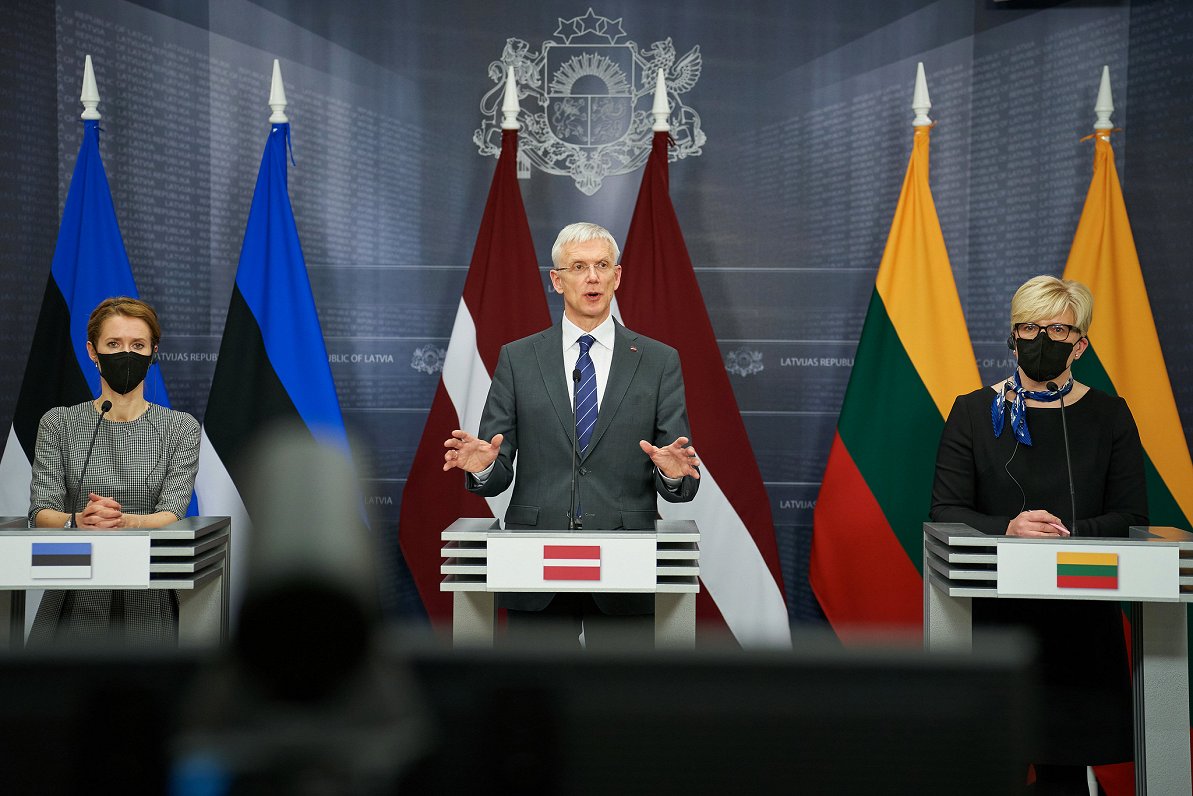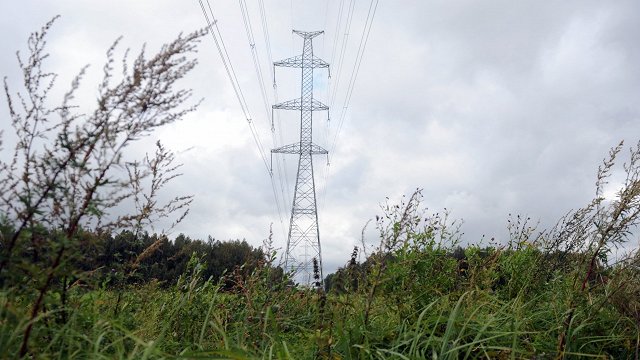Playing host to his Estonian and Lithuanian counterparts, Latvian Prime Minister Krišjanis Kariņš said the talks, taking place under the auspices of the Baltic Council of Ministers, had been "fruitful and very interesting" and had centered on regional security, the Ukraine-Russia situation, the coronavirus pandemic and the European Green Deal.
"Regarding regional security, it is important for us to remember that we are all members of the NATO Alliance, which gives our region particular security," Kariņš said, citing the fact that troops from 26 of 30 NATO member states were currently present in the Baltic states.
He also said it was important for the Baltics to support Ukraine "Not only with words, but also with deeds, and also militarily it is important to provide support in such times."
On the Covid-19 pandemic, he said that the experience of the three Baltic states was "very similar" and that medical experts and health oficials ffrom the three countries would be consulting each other in the period up to March with the purpose of coordinating the three countries' stances regarding future Covid-related restrictions.
However, the leaders stopped short of a commitment that restrictions and policies would be identical across the board or that they would all be lifted at the same time in the same manner, noting that current restrictions varied from country to country, as did the epidemiological landscape.
On the European Green Deal, Kariņš said the three prime ministers had signed up to a unified position that cutting emissions and being more environmentally friendly must not come at the cost of increasing dependence on Russian energy supplies.
In answer to journalists' questions concerning intensifying sanctions against the Lukashenko regime in Belarus, Kariņš said ambassadors from the three Baltic states were today lobbying for EU-wide sanctions in Brussels and that this was preferable to sanctions imposed by EU member states individually, though this was an option.





























